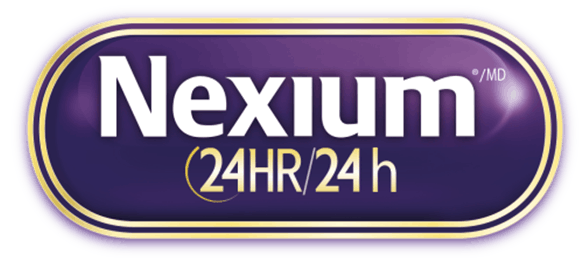How Does PPI Medication Work?
Lots of people suffer from increased heartburn symptoms at night. This is because when you lie down to go to sleep, you lose gravity’s effect of helping to keep your stomach acid down where it should be. Proton pump inhibitors work by permanently blocking the H+/K+ ATPase enzyme – or the gastric proton pump – in the stomach’s parietal cells, which is the final stage of gastric acid production. Acid production isn’t completely stopped because the parietal cells are always reproducing.
Put simply, PPIs stop the stomach from producing so much acid, reducing acid reflux and painful heartburn, allowing your irritated esophagus time to heal.
What are the Side Effects of PPIs?
One of the top reasons that PPIs came to replace H2 blockers for treating acid reflux and heartburn is that they have few and mainly tolerable side effects. They are considered safe for short-term use.
PPI side effects, when used short-term (two weeks), can include:
- Headaches
- Rashes
- Dizziness
- Nausea
- Flatulence
- Constipation
- Abdominal pain
- Diarrhea
These mild side effects are very rare – only 1-2% of patients using PPIs experience them.
However, studies are ongoing into the long-term use of proton pump inhibitors and potential serious side effects. Researchers are studying the possibility of infections, kidney disease, impaired ability to absorb nutrients, and cognitive disorders as long-term side effects of PPI overuse.
That is why it’s vital to consult your pharmacist when buying PPIs over-the-counter about dosage and medication course, and to speak to your doctor about longer-term solutions if your symptoms persist after finishing the course.
Types of PPI
Types of PPI include:
- Omeprazole
- Lansoprazole
- Pantoprazole
- Rabeprazole
- Esomeprazole
Nexium 24HR contains esomeprazole and is for people who suffer from heartburn 2 or more days a week. Find out if Nexium 24HR is recommended in your case by answering our quick quiz or talking to your doctor.
Are All PPIs the Same?
All PPIs are chemically similar but they contain different active ingredients. They are all found to heal esophagitis (an irritated esophagus) in 90 to 94% of patients.
If you experience side effects from using one type of PPI, speak to your doctor about switching to another – research has shown that this can ease symptoms in some patients.
H2 Blockers vs PPIs
Why are PPIs generally recommended over H2 blockers? This is because they’re more effective at reducing stomach acid production and relieving heartburn.
It has also been found that the H2 blocker cimetidine can reduce the efficacy of blood thinners, blood pressure medications and antidepressants. As well, H2 blockers in general can become tolerated by the body and less effective at suppressing acid production over time.
You can compare PPIs with antacids and H2 blockers using our guide.

